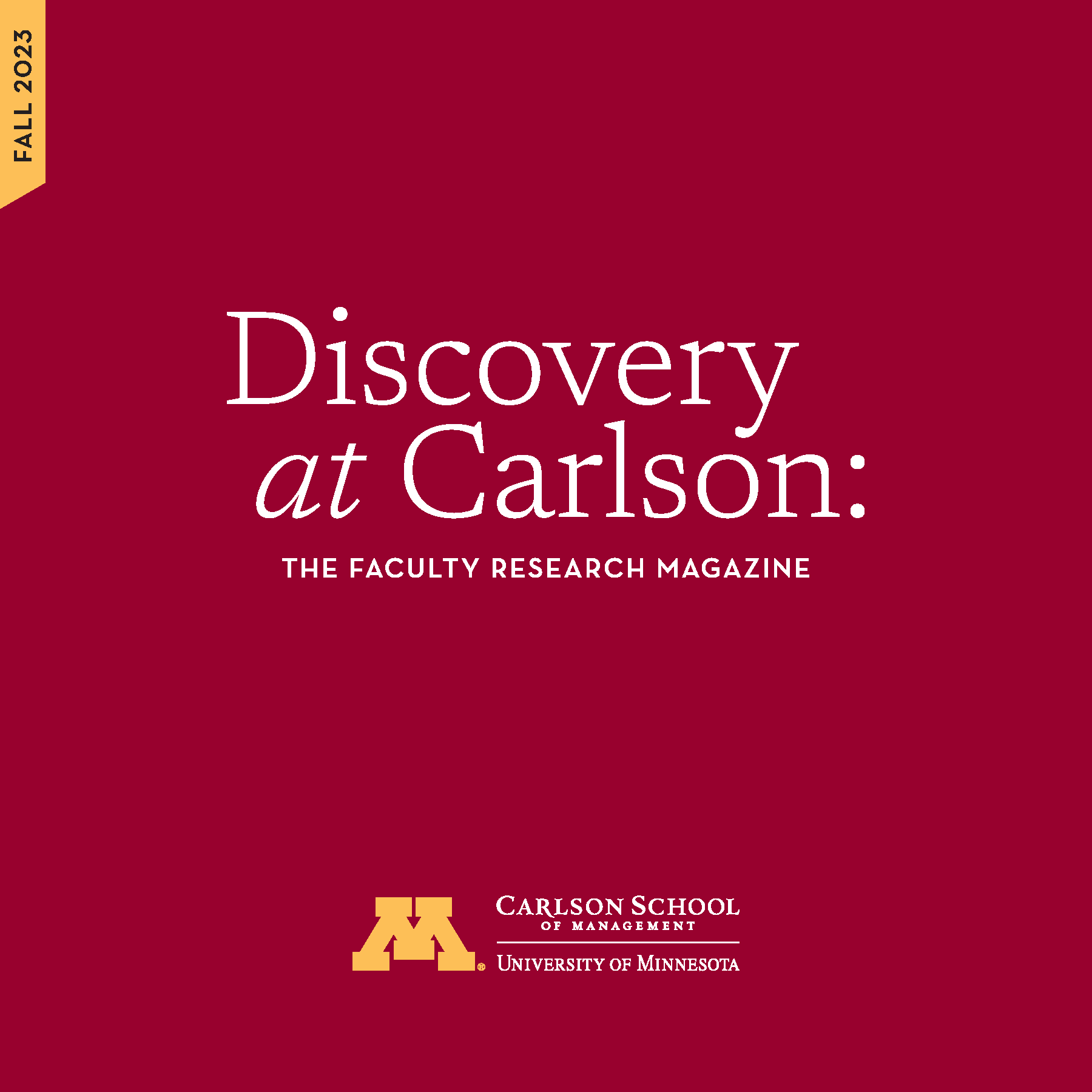
Research in Progress: Fall 2023
Monday, November 27, 2023
A snapshot of two research projects from Pinar Karaca-Mandic and Russell Funk, supported by notable grants, underway at the Carlson School.
Examining COVID-19 medication treatments during the pandemic
A nearly $1.6 million grant, supported by the Agency for Healthcare Research and Quality, will help uncover how the rapid flow of information during the COVID-19 pandemic impacted medication treatments for the disease.
Professor Pinar Karaca-Mandic is leading the project over the next four years out of the Carlson School’s Business Advancement Center for Health (BACH) alongside Mayo Clinic researchers. Through this grant, the researchers aim to gain a better understanding of what influenced the adoption and de-adoption of various COVID-19 treatments. During the pandemic, physicians and healthcare providers had to navigate changing information and shifting policies to treat the fast spreading disease.
The researchers will be examining the use of hydroxychloroquine, some corticosteroids, ivermectin, and more during the pandemic. They will analyze prescription data for Medicare patients along with a multitude of factors, including demographic information, state policies, and hospitalization rates. By identifying the factors influencing providers, the researchers hope to determine outreach strategies to help make treatment safer and more equitable.
Analyzing the dynamics of scientific discovery
Associate Professor Russell Funk will be helping lead two projects that will expand on his recent research that explored the slowing of disruptive scientific discoveries.
The first, supported by a nearly $1 million grant from Wellcome Leap, will examine how different models for funding and organizing research may relate to the disruptiveness of science. The team will study whether research developed under the Pasteur’s Quadrant model, which supports projects that both advance science and societal need, is more disruptive than other work and provides positive “ripple effects” to the larger research ecosystem.
A $700,000 grant from the National Science Foundation powers the second study: a three-year project aimed to measure novel social mechanisms that might influence scientific progress. Through this project, the researchers intend to evaluate the rate of scientific progress, whether research funders are becoming more conservative, and how the current social organization of research shapes scientific discoveries.
The findings from both projects carry impacts beyond academic communities, as science is a key driver of economic growth.


